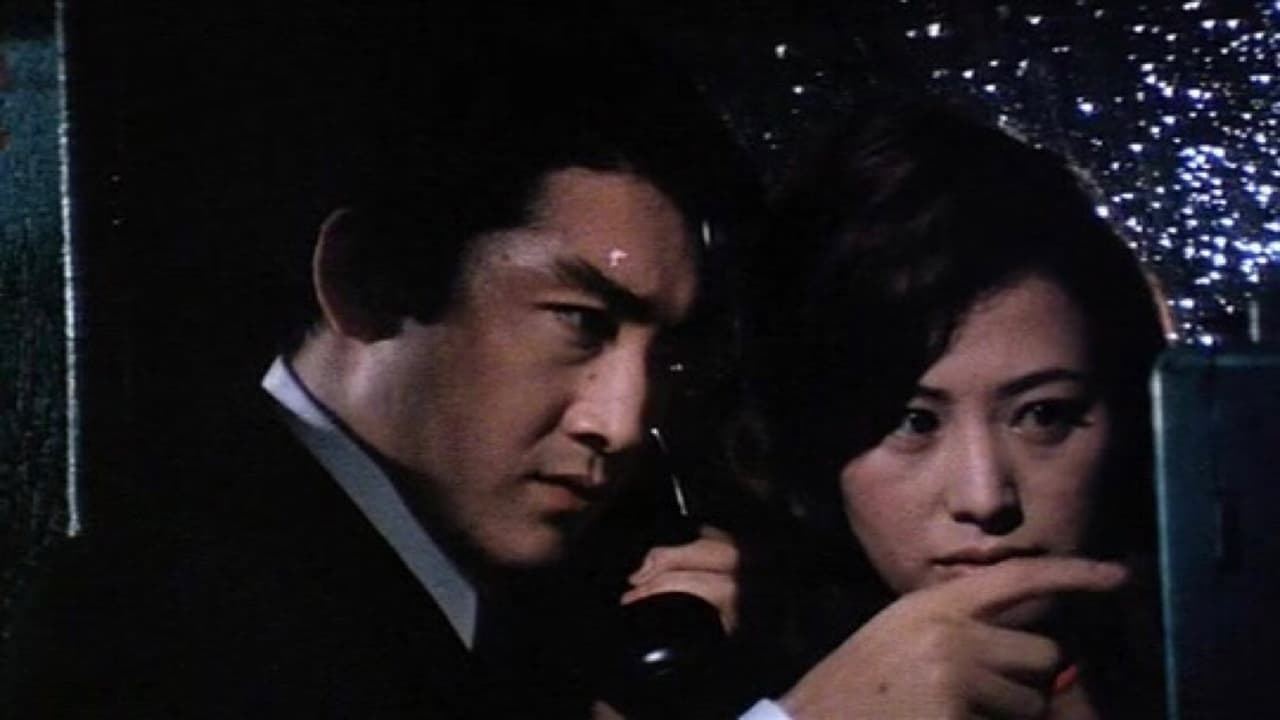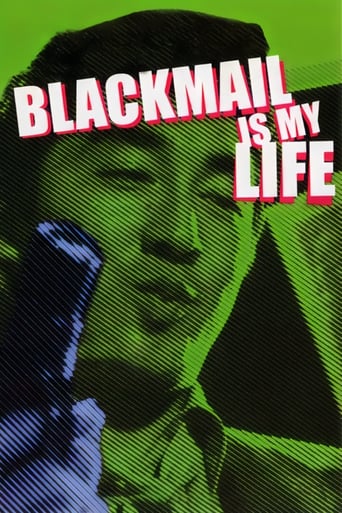

I noticed that IMDb lists this as a crime film AND a comedy. Well, there's nothing funny about the film--it's not at all a comedy. Instead, the film is about four low-lifes who make a career out of blackmailing people and fighting various mobs (who SHOULD have been able to smash them like bugs but somehow didn't throughout much of the film). For them, it all seems to be for the thrills and laughs--the money is secondary. However, the deeper the risk the greater the thrills--so they keep biting off more and more and more. You figure that eventually they'll get in way over their heads. And that is when their friend Zero (a black guy--which is quite unusual for a Japanese film) is killed, things look really bad for these bizarre anti-heroes.While this film is quite different from the usual mobster film of the time, it still is a pretty ordinary crime drama. It was reasonably entertaining but no more. For those who like the genre, it's worth seeing--for others, probably not.
... View MoreBlackmail Is My Life (1968)Well, the bad guys (four men and one woman, all young and good looking) have a lot of fun, and carry a lot of poise. As rank amateurs they are lucky and, between racing around in their car, show a lot of cool style. It's 1968 in Japan, and it feels like maybe 1964 in the U.S., with people still wearing suits and looking good doing it.Eventually, they get in over their heads, but we don't really worry at first. They often say vague things like, "We'll go ahead with out plan," but they never say what they are planning. And then the plan happens, and it's fast and jazzy, in a kind of extended television way. The plot is kind of interesting, digging into the underworld of Japan in this sideways fashion. And visually it's fun, very nice wide screen compositions in a wide range of gritty Japanese locations. There is even a dramatic, spare electric guitar score, perfect for the period.The more serious and deadly this movie gets, the more it loses it's lighthearted flaws. There is clearly (to me) an influence from Bonnie and Clyde (the previous year) with romanticizing bad guys and extended violence. There is some real poignancy built in, as well. There are lots of night scenes and dramatic lighting, and this has a late film noir kind of quality, somehow, dark and brooding between action scenes. If you don't mind some Japanese camp aspects, this might really make your night. And just a heads up: the second half is easier to like in a conventional way, even if the first half is more original and excessive.
... View MoreA fun movie. Discovering films like this is a constant source of knowledge for me. Knowledge that cinema, today, creeps forward rather than bounds ahead, as we insist on believeing. Just when you think that some director's style is an innovation you realize it's either a rip-off of, or is derived from, a school that is older and off the beaten track. Rather than criticize old movies for "reminding" us of new movies, it's better to see these movies in a historical context. And then we might finally get over our big old selves and see modern cinema in a more accurate perspective.
... View MoreThe story involves four people whose work is blackmail. They're successful in their "business," but their eyes eventually get too big for their stomachs when they think they've found a way to rip off the yakuza. The job proves harder than the easy money it initially seemed. While it is generally well done, its techniques reminded me a little too much of the annoying modern style with a lot of unnecessary freeze frames, chronological jumps, and shifts from black and white to color. I also felt that the characters ought to have been more well developed; the story is good, but the style overwhelms possible substance. My favorite part of the film is the fact that the characters whistle the theme tune to Suzuki Seijun's Tokyo Drifter, which means that Suzuki had to have had some popularity if his work was quoted like this. 7/10.
... View More